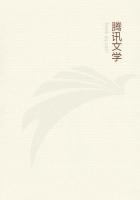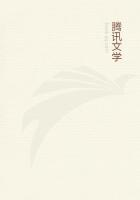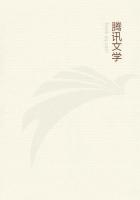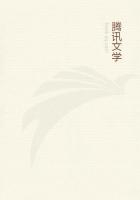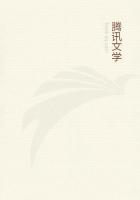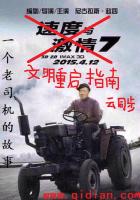His quarrel is not with women--what indeed could be more undignified?--it is with those who would destroy the natural relationship between the ***es, by modifying either the one or the other with a view to ****** them more alike. The human world is just as dependent upon women's powers as upon men's. It is women's strongest and most valuable instincts which help to determine who are to be the fathers of the next generation. By destroying these particular instincts, that is to say by attempting to masculinise woman, and to feminise men, we jeopardise the future of our people. The general democratic movement of modern times, in its frantic struggle to mitigate all differences, is now invading even the world of ***. It is against this movement that Nietzsche raises his voice; he would have woman become ever more woman and man become ever more man. Only thus, and he is undoubtedly right, can their combined instincts lead to the excellence of humanity. Regarded in this light, all his views on woman appear not only necessary but just (see Note on Chapter LVI., par. 21.)It is interesting to observe that the last line of the discourse, which has so frequently been used by women as a weapon against Nietzsche's views concerning them, was suggested to Nietzsche by a woman (see "Das Leben F.
Nietzsche's").
Chapter XXI. Voluntary Death.
In regard to this discourse, I should only like to point out that Nietzsche had a particular aversion to the word "suicide"--self-murder. He disliked the evil it suggested, and in rechristening the act Voluntary Death, i.e., the death that comes from no other hand than one's own, he was desirous of elevating it to the position it held in classical antiquity (see Aphorism 36 in "The Twilight of the Idols").
Chapter XXII. The Bestowing Virtue.
An important aspect of Nietzsche's philosophy is brought to light in this discourse. His teaching, as is well known, places the Aristotelian man of spirit, above all others in the natural divisions of man. The man with overflowing strength, both of mind and body, who must discharge this strength or perish, is the Nietzschean ideal. To such a man, giving from his overflow becomes a necessity; bestowing develops into a means of existence, and this is the only giving, the only charity, that Nietzsche recognises. In paragraph 3 of the discourse, we read Zarathustra's healthy exhortation to his disciples to become independent thinkers and to find themselves before they learn any more from him (see Notes on Chapters LVI., par. 5, and LXXIII., pars. 10, 11).
...
PART II.
Chapter XXIII. The Child with the Mirror.
Nietzsche tells us here, in a poetical form, how deeply grieved he was by the manifold misinterpretations and misunderstandings which were becoming rife concerning his publications. He does not recognise himself in the mirror of public opinion, and recoils terrified from the distorted reflection of his features. In verse 20 he gives us a hint which it were well not to pass over too lightly; for, in the introduction to "The Genealogy of Morals" (written in 1887) he finds it necessary to refer to the matter again and with greater precision. The point is this, that a creator of new values meets with his surest and strongest obstacles in the very spirit of the language which is at his disposal. Words, like all other manifestations of an evolving race, are stamped with the values that have long been paramount in that race. Now, the original thinker who finds himself compelled to use the current speech of his country in order to impart new and hitherto untried views to his fellows, imposes a task upon the natural means of communication which it is totally unfitted to perform,--hence the obscurities and prolixities which are so frequently met with in the writings of original thinkers. In the "Dawn of Day", Nietzsche actually cautions young writers against THE DANGER OF ALLOWING THEIRTHOUGHTS TO BE MOULDED BY THE WORDS AT THEIR DISPOSAL.
Chapter XXIV. In the Happy Isles.
While writing this, Nietzsche is supposed to have been thinking of the island of Ischia which was ultimately destroyed by an earthquake. His teaching here is quite clear. He was among the first thinkers of Europe to overcome the pessimism which godlessness generally brings in its wake. He points to creating as the surest salvation from the suffering which is a concomitant of all higher life. "What would there be to create," he asks, "if there were--Gods?" His ideal, the Superman, lends him the cheerfulness necessary to the overcoming of that despair usually attendant upon godlessness and upon the apparent aimlessness of a world without a god.
Chapter XXIX. The Tarantulas.
The tarantulas are the Socialists and Democrats. This discourse offers us an analysis of their mental attitude. Nietzsche refuses to be confounded with those resentful and revengeful ones who condemn society FROM BELOW, and whose criticism is only suppressed envy. "There are those who preach my doctrine of life," he says of the Nietzschean Socialists, "and are at the same time preachers of equality and tarantulas" (see Notes on Chapter XL. and Chapter LI.).
Chapter XXX. The Famous Wise Ones.
This refers to all those philosophers hitherto, who have run in the harness of established values and have not risked their reputation with the people in pursuit of truth. The philosopher, however, as Nietzsche understood him, is a man who creates new values, and thus leads mankind in a new direction.
Chapter XXXIII. The Grave-Song.
Here Zarathustra sings about the ideals and friendships of his youth.
Verses 27 to 31 undoubtedly refer to Richard Wagner (see Note on Chapter LXV.).
Chapter XXXIV. Self-Surpassing.
In this discourse we get the best exposition in the whole book of Nietzsche's doctrine of the Will to Power. I go into this question thoroughly in the Note on Chapter LVII.

